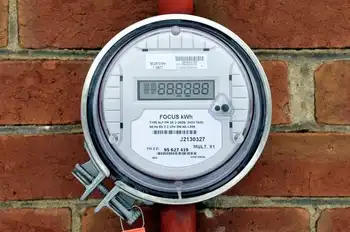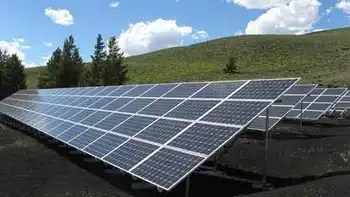Investors persuade four power companies to disclose climate risks
BOSTON, MASSACHUSETTS - In response to shareholder requests, four U.S. electric power companies in Missouri and Wisconsin have joined other utility companies by agreeing to assess and disclose the potential impacts from foreseeable regulations to reduce carbon dioxide and other greenhouse gas (GHG) emissions.
Investors persuaded Great Plains Energy Inc. in Kansas City, MO, Alliant Energy in Madison, WI, WPS Resources in Green Bay, WI and MGE Energy in Madison, WI to disclose how they are preparing for future GHG-reducing regulatory scenarios, including potential impacts on existing and proposed power plants. All four companies have proposed to build new pulverized coal-fired power plants that could be especially vulnerable to greenhouse gas emission limits on power plants.
Investors requested the climate risk reports through shareholder resolutions filed with the companies last fall. While those resolutions were withdrawn earlier this month, similar requests have been filed and are still pending with Dominion Resources in Richmond, VA and Peabody Energy in St. Louis, MI. Peabody Energy has also announced plans to build new pulverized coal-fired power plants in the coming years.
The companies are among more than two-dozen U.S. businesses - including seven electric power companies, four oil and gas companies, six real estate firms, four big-box retailers, two insurance companies, two banks and one auto company - with whom investors filed global warming shareholder resolutions as part of the 2006 proxy season.
The resolutions are part of growing effort by leading U.S. investors seeking more disclosure and action from U.S. companies on the risks and opportunities they face from climate change. The investors include many of the nation's largest city, state and private pension funds, as well as labor, foundation, religious and other institutional investors. Many of the investors are part of the $3 trillion Investor Network on Climate Risk, an alliance of more than 50 institutional investors directed by Ceres.
In addition to filing more than 30 resolutions, investors have sent letters to the nation's 30 largest insurance companies and 43 largest electric power companies, requesting that the companies provide climate disclosure reports this year, including plans for reducing their exposure from regulatory changes, physical changes and other climate-related impacts. Investors have also been pressing bond rating agencies and major Wall Street investment firms to include climate risk analysis in their investment ratings, especially for power sector investments.
"More investors than ever before are recognizing that climate change is a serious business issue and are demanding answers from companies on their strategies for dealing with it," said Mindy S. Lubber, president of Ceres, an investor coalition that helped coordinate the shareholder resolution filings and investor letters.
"Investors are particularly concerned about the long-term financial viability of coal-burning power plants if regulations limiting carbon emissions are adopted," said Leslie Lowe, program director of the Interfaith Center on Corporate Responsibility (ICCR), a group of over 200 religious investment funds, many of which are actively involved in filing global warming shareholder resolutions. "Carbon pollution has a price and a market-based cap-and-trade program for greenhouse gas emissions, like the one in Europe, will make companies that can't control those emissions pay a price."
In just the past two years, more than a dozen U.S. electric power companies have published or agreed to publish climate risk reports at the request of shareholders. Investors pushing for increased disclosure include New York City Comptroller William S. Thompson, whose office manages $95 billion in assets in the New York City retirement funds. Thompson's office filed six of the seven resolutions with electric power companies this year, including the four that his office recently withdrew from Alliant Energy, Great Plains Energy, WPS Resources and MGE Energy.
"These four power companies deserve credit for assessing these financial risks for shareholders, and more companies should be doing the same without investors having to file resolutions," Thompson said. "Given the growing support for carbon limits in the U.S., I'm especially concerned about the long-term implications of investing in new coal-fired power plants that will be burdened with these extra carbon costs for 30 to 40 years."
The power industry is proposing to build more than 100 new coal-fired power plants in the coming years - investments that could be substantially affected when greenhouse gas regulations are adopted in states and across the U.S. as is widely expected. Late last year, seven governors in the Northeast approved a market-based accord to reduce GHG emissions from regional power plants, beginning in 2009. Other states, including California, Colorado and Utah, now expect power companies to factor carbon emission costs - as high as $15 a ton - into their proposals for new power plants.
This year's filings come on the heels of record-high voting support for global warming resolutions in the 2004 and 2005 proxy seasons. Investors achieved 28 percent voting support on a resolution with ExxonMobil in 2005 - the highest support level on a climate-related resolution at the company.
Related News

Gravity power holds major promise for the decarbonization of electricity grids
LONDON - The general workings of gravity are nothing new: What goes up must come down. Over the past decade, scientists have been pursuing a new approach to this force of nature, exploring how it can generate carbon-free electricity through what’s been dubbed as “gravity power.”
Let’s take the fabled story of Isaac Newton’s falling apple as an example, but give it a twist. Instead of there being an apple dangling above him, Newton takes an apple and lifts it above his head, giving that apple his energy. That energy is then stored in the apple until he drops it, when…




